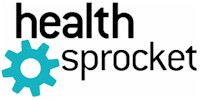Aug
11
Nursing Homes, Eggs, Rock Stars, Another Dr. Kev, and a Becker's Dozen
Thu, 08/11/2016 - 16:28
While making the rounds in reviewing August reporting on healthcare social media, here's some selected items that caught the eye:
Social Media and Nursing Home Patients: Husch Blackwell's Healthcare Law Insights features an August 8th story: CMS targets inappropriate social media use in nursing homes that reports on an Aug. 5th CMS memo (S&C: 16-33-NH). CMS advises that “each nursing home must review and/or revise their written abuse prevention policies and procedures to include and ensure that nursing home staff are prohibited from taking or using photographs or recordings in any manner that would demean or humiliate a resident(s). This would include using any type of equipment (e.g., cameras, smart phones, and other electronic devices) to take, keep, or distribute photographs and recordings on social media.” The newsletter notes that "within 30 days of the CMS memo, surveyors are expected to, during the next standard survey of a facility (whether a traditional survey or quality indicator survey) request and review nursing home policies and procedures related to prohibiting nursing home staff from taking or using photographs or recordings in any manner that would demean or humiliate a resident(s)."
Eggs: Don Antonucci, an executive with Regence Blue Shield, posts in Employee Benefit News on Why healthcare executives need to embrace social media, and among other things, advises us not to be an egg: "You should learn how to use social media and the foundational things needed to be successful and effective on choice social platforms. This can be as easy as updating your picture on Twitter from the default egg image. Don’t be an egg"
Healthcare Social Media Rock Stars: Aha Media offers a free e-book download: 10 Healthcare Social Media Rock Stars Share Their Best Tips, with interviews of ten hcsm stakeholders.
A Different Dr. Kev's Take: EP Lab digest interviews a idifferent Dr. Kev on social media (not Dr. Kevin Pho of KevinMD.com fame) - Doctor Kevin Campbell tells us "I am very active on Twitter, YouTube, LinkedIn, and Facebook. Instagram is great, but I don’t see the same application in medicine since it is more picture oriented, as is Pinterest. On YouTube, I’ve archived every video that I’ve ever done for any major news outlet. I find Twitter to be my favorite digital platform — it is real-time, person-to-person interaction — almost like a virtual conversation."
Becker's Dozen: In Becker's Spine Review Becker's Megan Wood offers 12 statistics on social media's presence in the healthcare space, which is also summarized as follows in Healthsprocket:
- 40%+ of consumers reported information they see via social media impacts how they handle their health
- 18 and 24 years are twice as likely to use social medial for health conversations as those aged between 45 and 54 years
- 90% of 18 and 24 years reported they trust medical information spread via social media
- Of smartphone users, 19% have at least one health app on their phones
- 41%of consumers reported social media may impact which physician or hospital they choose
- 31% of healthcare institutions wrote up social media guidelines
- 31% of provider use social media to network
- 26% of hospitals use social media
- 60% of physicians said social media enhances care
- YouTube traffic to hospital sites has increased 119% year over year
- 23% of drug companies have not dealt with social media security or privacy issues
- Of all social media platforms, most hospitals use Facebook
Note - this blog post first appeared in the HealthShareTV Blog
- Clive Riddle's blog
- Login to post comments

